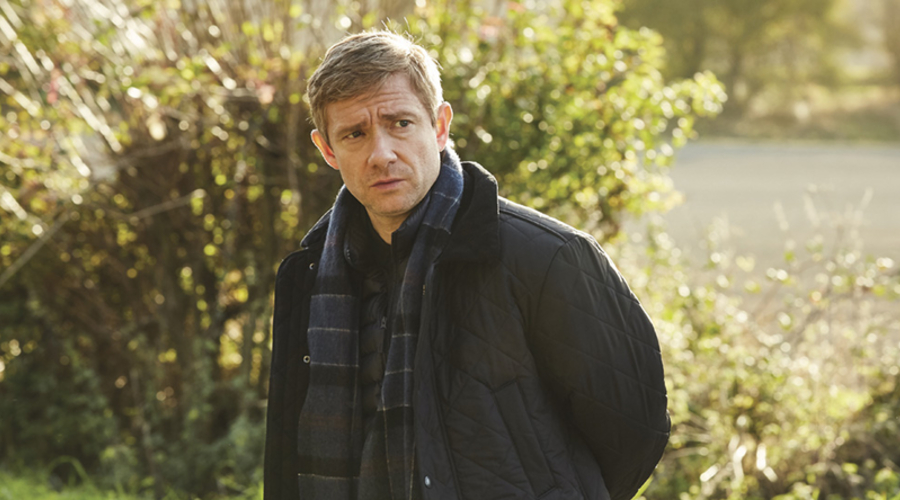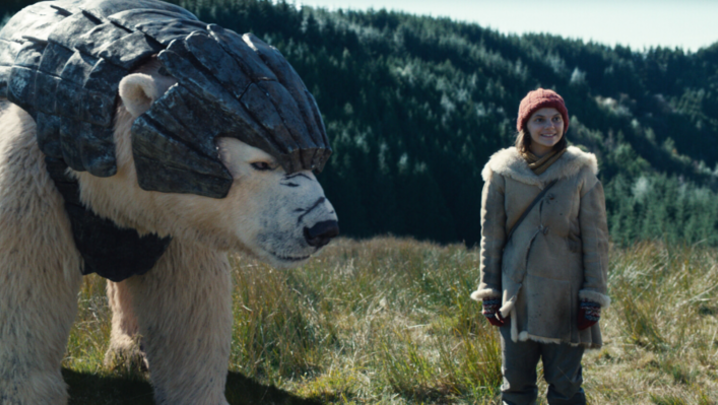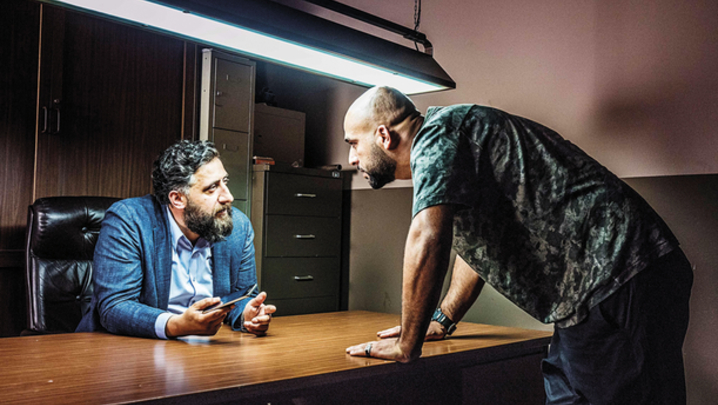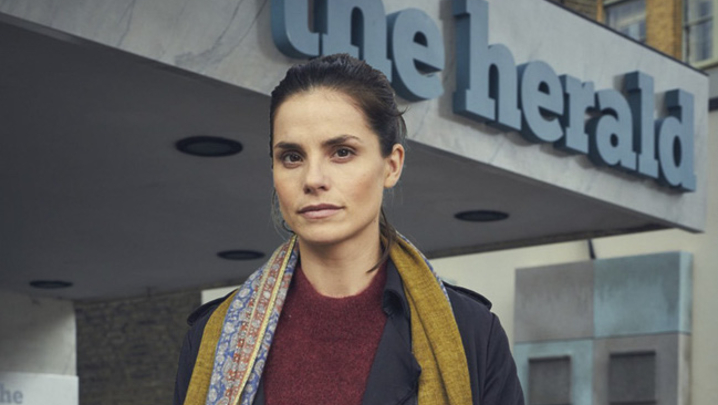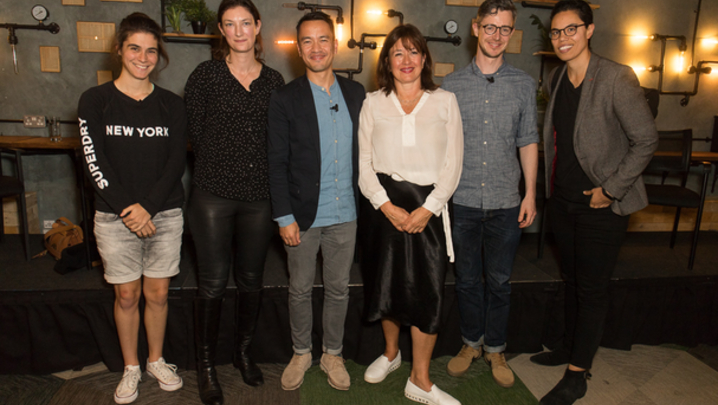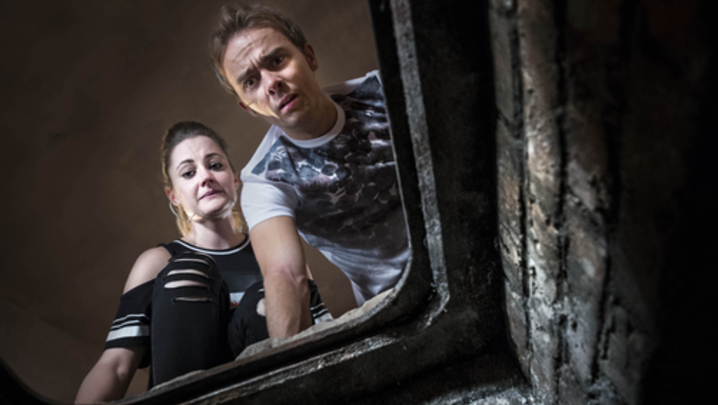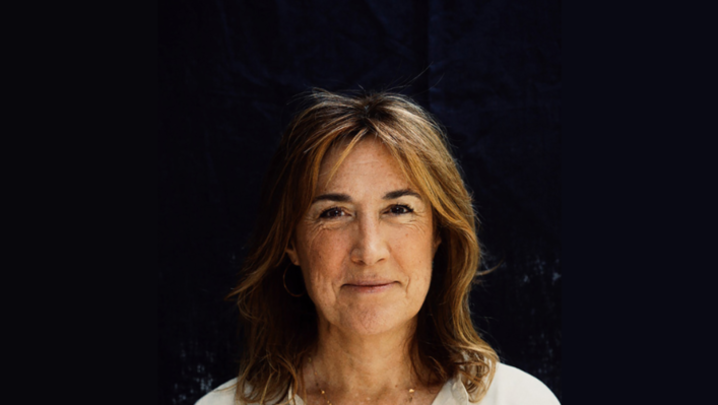Steve Clarke is engrossed as the acclaimed writer and producer looks back on his extraordinary career at an RTS event
You could be forgiven for thinking that Jeff Pope was obsessed by the macabre. Why else would he be drawn to such odious topics as the Moors murders, serial killer Fred West or Britain’s last hangman, Albert Pierrepoint?
He puts it like this: “If drama is about conflict, which it is, you’re looking for the extremes of conflict. Those areas are love, fate and, I would argue, crime.
“I am not a depressive person or ghoulish but it’s the old journalist in me: there’s a good story in it.”
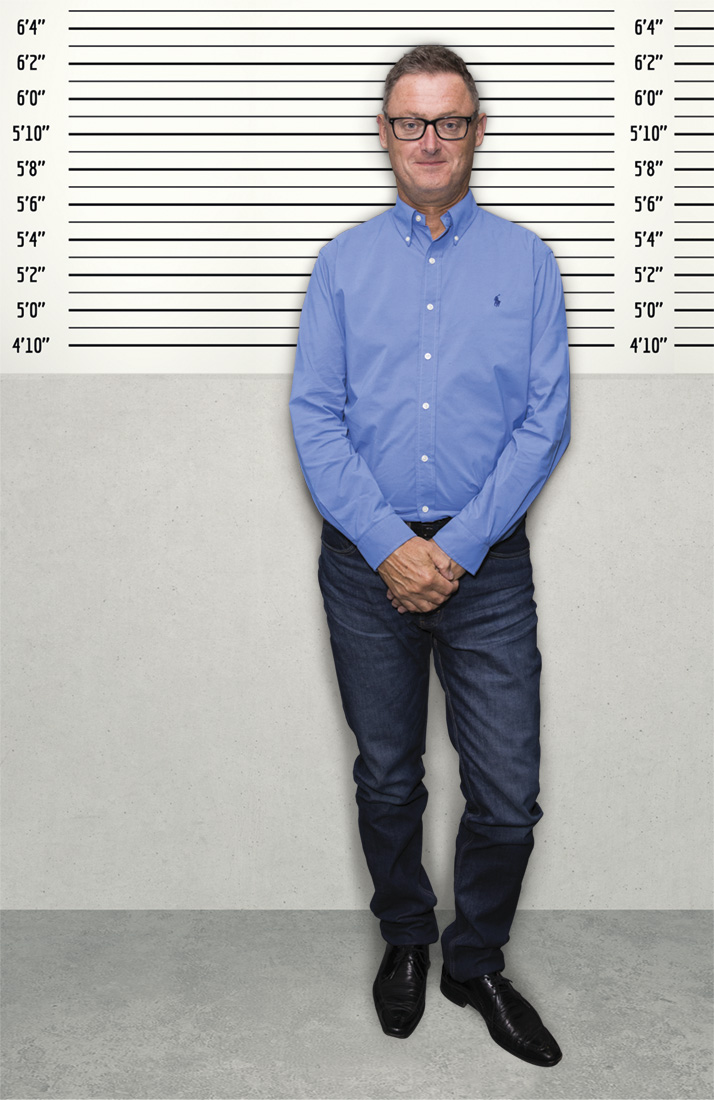
And, of course, Pope, screenwriter, producer, executive producer and self-proclaimed Proclaimers lookalike – it’s the glasses and quiff – is almost as well known for his lighter work. This includes: ITV biopic Cilla (which he wrote); last year’s award-winning Stan & Ollie movie (co-written with Steve Coogan); and BBC Two’s Cradle To Grave (co-written with Danny Baker).
Crime, though, remains his main source of inspiration, as the RTS discovered during a recent early-evening event, “In conversation with Jeff Pope”. In a wide-ranging interview covering his career, he made it clear that his apprenticeship as a cub reporter on the Ealing Gazette – reporting court hearings and doing police calls – gave him the skills that led to him becoming one of British TV’s most prolific practitioners of fact-based drama.
“It’s being professionally nosey,” he said. “As a journalist, you take a lot of information and process it into a story with a beginning, a middle and an end.”
His latest TV series, the highly praised A Confession, shown on ITV, is another chip off the old block – the story of a detective’s mission to find a missing young woman. The investigation leads the policeman to a murderer and ends up destroying his career.
Pope’s technique involves spending a lot of time with the story’s protagonists, in this case erstwhile cop, Steve Fulcher, whom Pope spent many hours talking to.
He told the RTS: “My process is to go deeper and deeper into what actually happened. Therein lies the avoidance of cliché. We’re all unique and tell stories in a slightly different way. That’s the material. My job is finding the way through it.”
It was 1983 when Pope quit the Ealing Gazette to join ITV station London Weekend Television as a researcher on the pioneering Six O’Clock Show – a less bland precursor of The One Show. “I have done fictional stuff but, even then, it was inspired by things that have happened,” he recalled.
Making short, quirky films on such subjects as couples lingering “too long on goodbye kisses” in London car parks or a fish ’n’ chip shop – “It was a brilliant discipline” – Pope quickly felt at home in TV.
At LWT, Pope was part of the team that created Crime Monthly, “a sexy Crimewatch”, featuring the re-enactment of crime scenes. “I built it from the ground upwards,” he said. This experience was to prove vital in his later role of writing and producing series based on real-life crimes.
Pope’s first full-length TV drama was Fool’s Gold: The Story of the Brink’s-Mat Robbery, in which thieves stole gold bullion worth £26m from a trading estate near Heathrow – at the time, Britain’s biggest ever robbery.
Asked to identify his favourite crime shows and writers, Pope mentioned Thames Television’s influential The Sweeney and Law and Order, penned by GF Newman. He described Law and Order as “a brilliant series – the dialogue was magical. I still didn’t quite trust that I could do it. [As a writer], I was half putting my toe in the water.… I co-wrote Fool’s Gold with [its director] Terry Winsor and I found it easy.
“People have different skills. I am not a frustrated actor or director. I love writing.”
At LWT, he would bump into Cilla Black, then presenting Blind Date, in the lifts and was told stories of how the star had a lavatory designed by her husband, Bobby, installed in her dressing room. Decades later, after reading about her and Brian Epstein, the brilliant manager and impresario who helped set the 1960s ablaze with the Beatles, he pitched Cilla to ITV’s then-director of television, Peter Fincham.
“Nervously, I presented eight ideas to Peter, including one about the terrorist siege of a Tunisian petrochemical plant, but he immediately plumped for Cilla.... I remember reading that, when Epstein died, on his bed was a contract for Cilla to present the Cilla TV show for the BBC. I always thought of her as a TV star, rather than a 1960s singer.”
In the series, Sheridan Smith played Cilla – a role that won her a Bafta nomination. Earlier, Pope had cast Smith as Ronnie Biggs’s wife, Charmian, in Mrs Biggs. “It remains one of the pieces I am most proud of,” he said. Smith won a Bafta for the part, which she was given following a memorable audition (see box, right).
Female characters were particularly impressive in Pope’s work, suggested hiss interviewer, Caroline Frost. Did women impress him? “Yes, they must do. I don’t ever think of it like that. I’d like to think I was doing this way before #MeToo. “I suppose I am inspired by the female characters. I didn’t want to do Ronnie Biggs, I wanted to do Charmian because, in a way, Ronnie had it easy. She is the one I was inspired by....
“I saw a documentary about her and really liked her. I thought she was a very dignified, highly intelligent and articulate woman.”
Pope found a way into the story of serial killer Fred West and his wife, Rosemary (an accomplice in the majority of the 12 murders he was found guilty of), via social worker Janet Leach in Appropriate Adult; Pope executive produced the two-part ITV series which was written by Neil McKay.
‘It’s the proximity of evil, not evil itself, that interests me’
“I remember coming across Janet and being intrigued by her story,” he said. “West was semi-literate and the police didn’t want him to say further down the line that he couldn’t read and write and therefore didn’t understand the interview process. They put an appropriate adult in with him during their interviews.
“They normally put appropriate adults in with children. That’s why Janet – a housewife trained as a social worker – is there.
“We didn’t want to see any of the murders, or be on Fred’s shoulder, and I didn’t want to get into his head other than through how he interacted with Janet. It’s the proximity of evil, not evil itself, that interests me.”
With an A-list actor such as Dominic West playing the killer, how did Pope avoid glamorising people like him?
“It’s all to do with being as faithful and truthful and as fair as you can be. Obviously, that starts with the writing.… It’s not just the script… it’s everything – wardrobe, obviously the way it’s shot, make-up.
“What you’re trying to do is to not see them. When I worked on The Six O’Clock Show, a director told me ‘The best direction is when you don’t notice it.’ That doesn’t mean that I don’t like films that are wonderfully stylish. That’s fine if it suits [the piece].”
But why did he want to produce a drama about the Wests? “What was fascinating was the closeness… Fred could have lived next door to me. He was an avuncular builder and handyman. Janet could have been my sister. She was the everywoman.”
Pope thinks that it is “cathartic” to shine his torch in dark places. One of his most critically acclaimed series was Little Boy Blue, the story of the murder of Rhys Jones, an 11-year-old who was shot in the back in Croxteth, Liverpool. “The process there was the same as it is on a lot of my projects, where I spend a lot of time going to see the people at the heart of the story, because your imagination can’t match the reality of the events they’ve experienced.”
He told the RTS that he held off meeting Rhys’s parents until it was confirmed that the show would be made. “Talking about their grief was part of the story,” said Pope. “Their big thing is that there is no closure: there is a bleakness. The guilty verdict makes no difference.
“It’s that thing about the truth – you shouldn’t be frightened of the truth. I came across it time and time again. There are people who try to bend it and don’t want you to tell the truth. But, by and large, normal people are not frightened by what has happened.”
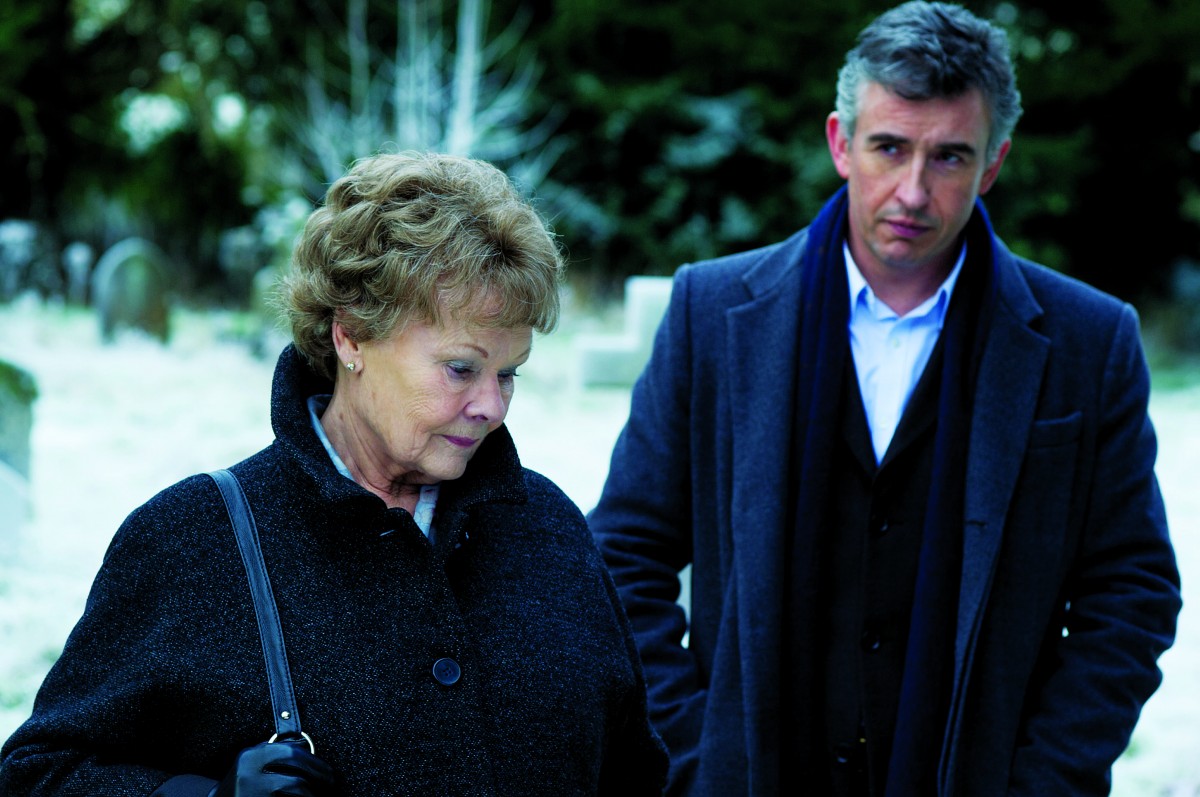
(Credit: 20th Century Fox)
Pope’s career, arguably, hit a new plateau with Philomena, co-written with Steve Coogan. Their script was nominated for an Oscar and won the Screenplay prize at the Venice Film Festival. In all, Coogan and Pope’s script won five awards.
“The success of Philomena came to me when I was relatively mature. I knew what my strengths and weaknesses were. I said to myself that the way through this is to take on work that you think you can do as well as anyone else.… I think the thing that I can do as well as anyone else is to tell true stories.”
He added: “I always thought that I had to come up with the ideas. Steve Coogan came to me with Philomena. That told me something: there are people out there who also have great ideas.
“Success gets you meetings, but it still won’t get something over the finishing line if it’s not good enough, which is as it should be. You can’t rest on your reputation. It has to be on the quality of the work.”
Pope and Coogan were reunited for last year’s much-feted movie Stan & Ollie. He had wanted to write a story based on Laurel and Hardy’s sunset years for many years: “I’d read several books on them. Their lives were chaotic, they rowed endlessly – tempestuous lives of excess but, right in the middle of it, love. They really did love each other.
“I fell in love with that story. I knew I wanted to tell the story of when they were old and sick. That’s when their love was at its greatest because they needed one another so much. That’s what I responded to.”
As for casting Coogan as Stan Laurel, Pope said: “The truth is, I thought Steve was too obvious to play him… In my mind I resisted it until I woke up one day and thought, ‘This is nonsense’.… I was worried that he would say, ‘No, it’s too obvious.’
“But he didn’t. He instantly knew how to play it.”
‘In conversation with Jeff Pope’ was an RTS early-evening event held at Kings Place, London, on 29 August. The interviewer was journalist and broadcaster Caroline Frost. The producers were Caroline Frost, Jamie O’Neill and ITV.
Jeff Pope on… Casting decisions
‘Casting is a form of alchemy that sometimes doesn’t bare too much scrutiny.’
Jeff Pope on… Casting Sheridan Smith as Charmian Brent in Mrs Biggs
‘The part of Charmian hung on who played her. I didn’t write it with Sheridan in mind… we had two full days of casting Charmian.
‘The casting director and the director let those auditioning for the part choose their scenes from the script. Most of them decided to go for a scene where they didn’t have to show their entire hand because, if you really go for an emotional scene and you don’t hit it.… Most of them played safe.
‘The last person on set on the second day was Sheridan. I was thinking she’d be too big [for the part], because she’s had a lot of stage success.
‘She came in wearing quite a flamboyant outfit. She chose the death of the son scene (the Biggs’s 10-year-old son, Nicholas, was killed in a car crash) and had no nerves whatsoever. It was so brilliant.’
Jeff Pope on… Casting Martin Freeman as Steve Fulcher in A Confession
‘I wrote A Confession with him in mind.… He has the ability to play someone you can relate to as a normal, average guy.…
‘When we budget it, inevitably there’s a gap [but], because Martin is an internationally recognised, saleable actor, that did help with the budget. ‘I didn’t cast Martin for cynical reasons. I cast him because I thought he was a brilliant actor and would be perfect to play Steve Fulcher, and that’s how it should be.’
Jeff Pope on… Facing writers’ block
‘There are periods when you are dry, which is scary: “I can’t fucking write anything. What I’m doing is shit.” Everyone goes through this. The only thing that keeps you going is knowing that you’ve been in that situation before and you found a way out of it. Not thinking about something helps. Confidence is a big part of writing.’
Jeff Pope on… Narrative strategies
‘Appropriate Adult starts with the Wests’ front garden being dug up. Stan & Ollie starts with a spat.…
‘Stories start to tell themselves so there’s a natural rhythm to where something happens.
‘You’re building. My process very often will be to start at the end and to know where I’m heading and build towards that. In every story, there’s the big thing and it tends not to be at the front.’

